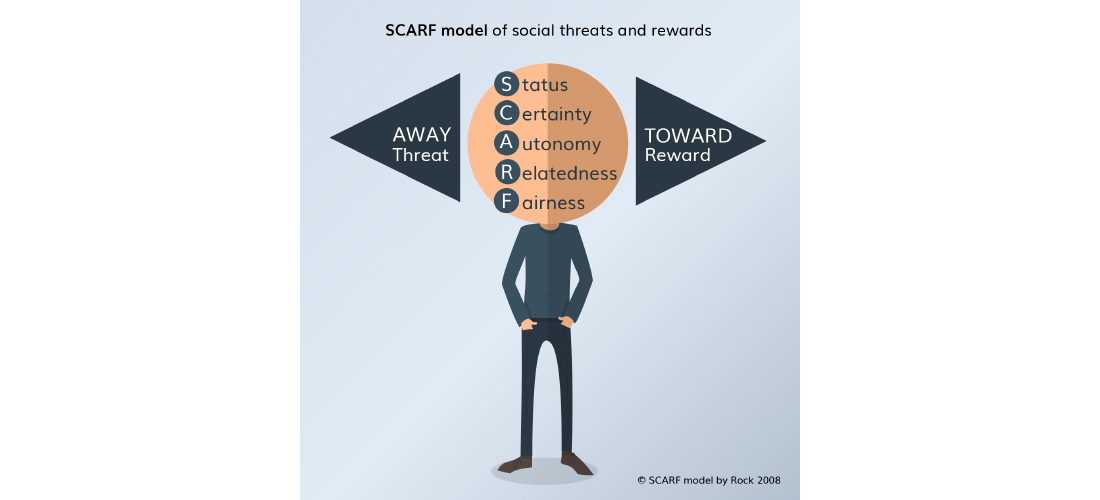
How To Build A Working Space That Makes Employees Feel Comfortable With Speech Issues
5 yearsago 0 Comments 1.7k Views
The issue of not raising your voice is considered an alarming issue for employees at the office. In the United States alone, medical errors associated with a lack of interaction have led to the death of 400,000 people each year. At the level of an organization, the lack of communication and discussion can be painful and costly to deal with. Over the past few decades, the government has imposed a fine of more than US $ 250 billion due to unethical behavior caused by banks. This is not a small number and it is possible that these behaviors have been prevented if the employees of these organizations initially spoke up. In addition, survey data indicated that nearly 75% of employees were bullied or harassed at work leading to a hazardous and low-performing work environment. However, only a small number of these people dare to speak out about this sad truth.
Another benefit of building a free speech environment is that employees will feel happier. An adult will be able to build ideas, share problems and say things that they find frustrating if they are most comfortable with their work. And that also makes them perform better, reducing the number of workers who easily quit their jobs.
So why don’t employees dare speak up?
Before understanding how leaders can create an ideal workspace for employees to voice their voices, we must understand why employees choose to remain silent. Most leaders often think that employees only speak up when they really feel the pain of a problem, they will take up the courage to speak up. But brain researchers think this is inaccurate. After many times of continuous problems, most employees will choose to remain silent and get used to the trouble itself without having to speak up.
A well-known study has shown that college students discovering a smoky room that this is quite normal and not speaking up. In a three-person research group, 38% will have one person speak up about the smoke-filled room. This number will be reduced to 10% if three people have a person who is considered passive. However, if you leave them alone in this room, the possibility of this person speaking is 75%, and the object they choose to talk about this issue will be the authority on the fire and explosion issue in this room. These findings are an initial suggestion for scientists that even the smallest social pressure can prevent people from doing what they know to be true. Psychologists call this “diffusion of responsibility.” When we see something that we think is bad, we know that other people see it, most of us will choose to shut up because everyone believes that there will be people who will speak up instead of us.
Besides “diffusion of responsibility” people may not speak up because of their fear of isolation. The human brain has developed the organ in charge of handling social relations and has long recognized science the importance of social connection to human survival. Therefore, sometimes people choose not to raise their voices because they are afraid that they will be denied listening to their stories. Naomi Eisenberger has gone one step further to prove in its research that emotional pain, when excluded from society, is closely related to physical pain.
Whether to speak up or not depends on whether a person feels helpless, disconnected or feeling skeptical in the social system. At the NeuroLeadership Institute (NLI), scientists think that the way people act in a social system follows the SCARF model, which describes how to organize the five main aspects of threats and rewards in society: status, certainty, self-control, relevance, and fairness. People will choose to speak up if they are put into difficult situations or they simply feel a low level of threat. In the SCARF model, they will only do so if their spirit is not overwhelmed or threatened by the related issues mentioned above.

SCARF Model of social threats and rewards
Social threats can explain the tendency to rationalize the need to speak up. Consider how you react when you hear someone say an annoying joke at work. You can solve the problem right away, tell the person that the joke is inappropriate or take the matter to your boss or his or her superior. Or you can choose to remain silent if the annoying jokes are your boss and speaking up can ruin your career if there was a precedent for speaking up and these people were also declared. Therefore, the decision that not speaking up could be considered the most perfect solution for you.
How to change this bad habit of employees?
Practice expressing a different point of view. Language holds the power to create human shared behavior. Speakers can use language to create a more empowered culture in daily meetings and conversations while reducing the anxiety that others have can misunderstand something. For example, employees can start their story by adding phrases that can reduce the threat of status, such as “The purpose of this project is…” or “This is not based on my personal opinion… ”
Make more friendly suggestions. At the beginning of a meeting, the people with the highest status can remind people that all feedback is welcome and all ideas will be heard. NLI’s experimental research has shown that asking for feedback instead of forcing someone in-demand will reduce stress in both speakers and listeners in order to better knowledge acquisition. Feedback culture development makes raising your voiceless challenging and comfortable for both sides of the story.

Language and wisely words of managers can reduce the speech issues of employees
Choose words wisely. It sounds simple, but subtle changes in word selection can be effective in increasing your voice. In a study focused on collective language, researchers found that leaders can increase the volume by 10% just by using the phrase “we” in discussions instead of phrases express less personally like “hospital” or “organization”. When the leader had a convincing opening, their voice rose to 27%. And when leaders use collective language, it signals that they can reach and get closer to their employees, and therefore people feel more comfortable speaking out their problems.
Turn yourself into an example. When leaders improve their voice when communicating with their members, they act as a catalyst for the goal of “spreading”. Psychologists have long discovered that people tend to re-examine themselves before the images they see from the behavior of colleagues or respected people. An organization’s leader will convey this influence in the collective rules they teach their employees. Staff will reorganize their activities and goals based on the image their boss creates. When the voice becomes the priority of the leaders, with appropriate habits and systems, it can become a non-heroic act for people to speak up and strip before the leaders. Leaders must turn all these tools into a habit and they themselves need to speak out when they see things that they feel are wrong and troublesome.
After all, the organization will benefit more if they create a working environment that people are proactive, engaged in, and more inspirational. In general, this will be a progressive relationship, both for organizations and people working here. With millions of people annually affected by non-transparent decisions, indecent behavior or mistakes from others, the fact that employees can speak up is not only a nice-to-have feature but a must-have in every business.
According to Strategy+Business
——————–
How do you think about this article? Please share it with us via the comment section below.
PRIMUS – FIRST CLASS JOBS ONLY





